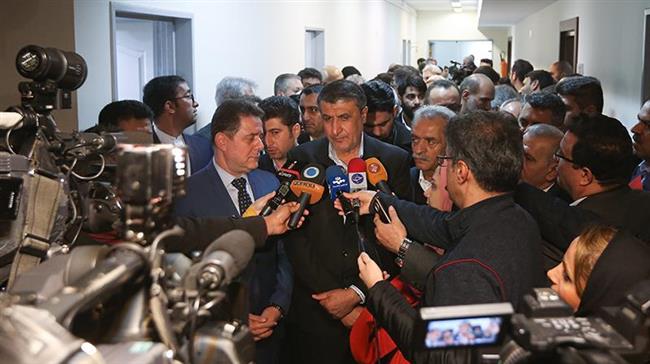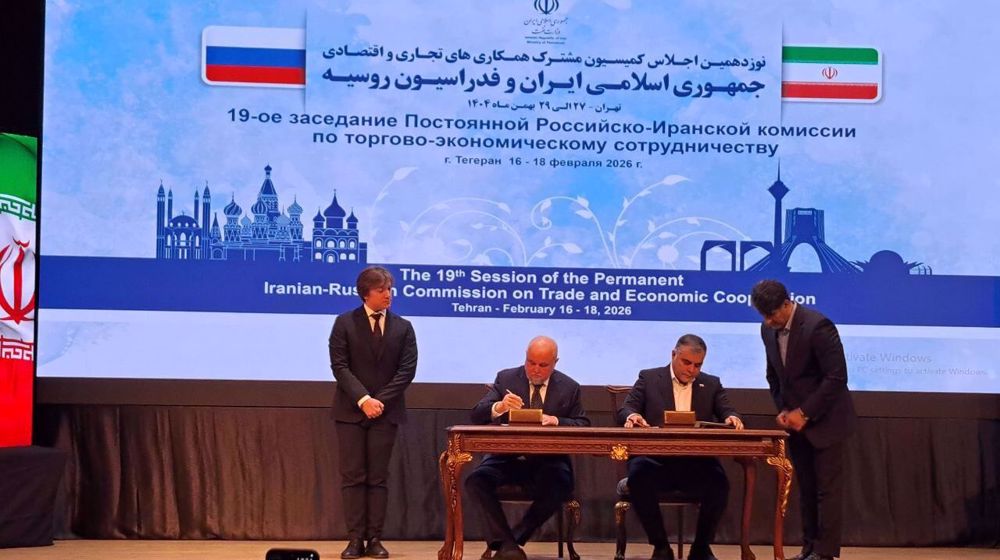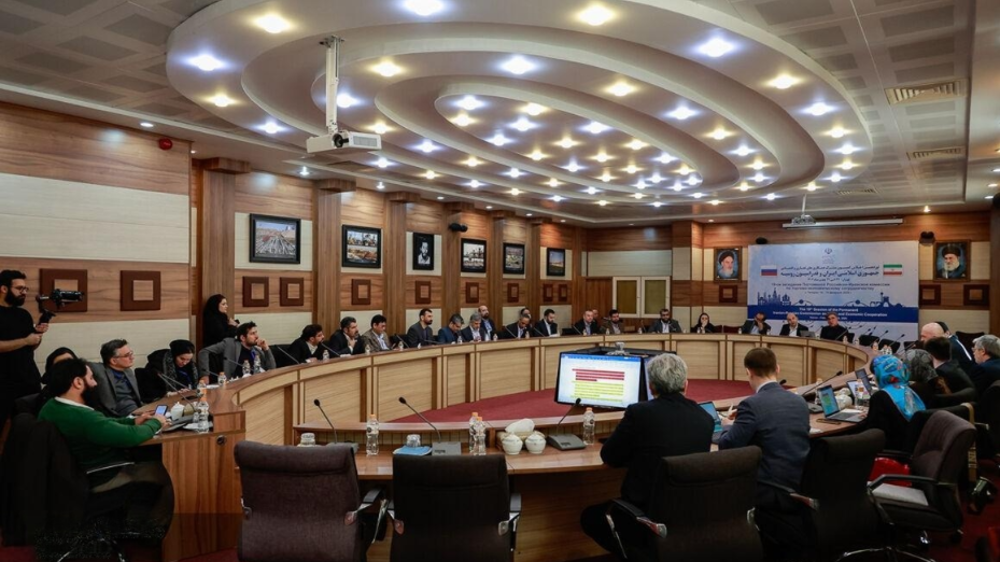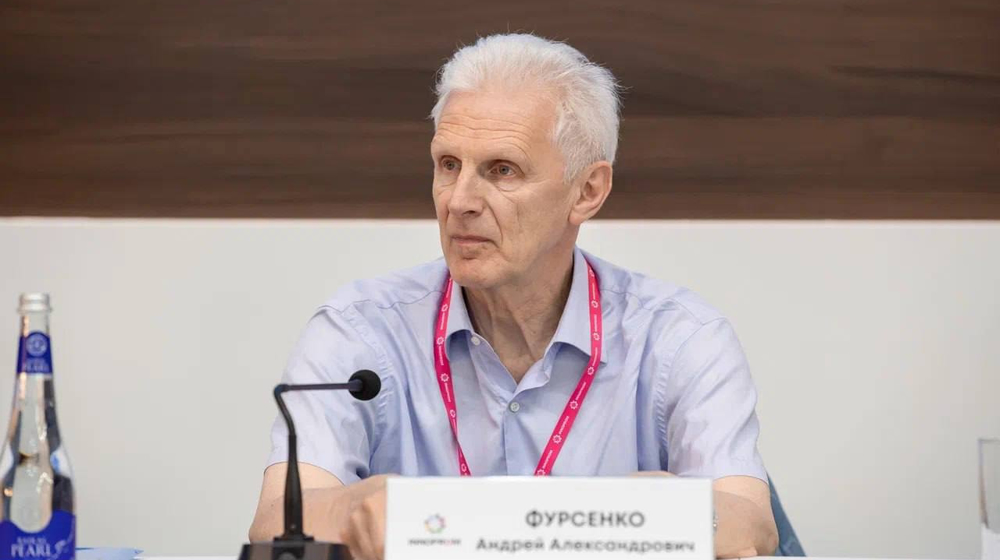Syria 'prioritizes' Iran, signs key reconstruction deal
Iran and Syria have signed a new agreement to fast-track reconstruction of the Arab country which is devastated by eight years of a foreign-orchestrated war.
Syrian Minister of Public Works and Housing Suhail Mohammad Abdul Latif said in Tehran Tuesday that the priority for Damascus is to consign Syria’s rebuilding to friendly countries, foremost Iran.
“Our approach to rebuilding Syria is to prioritize Iranian friends,” he said, Fars news agency reported.
Abdul Latif and his Iranian counterpart Mohammad Eslami signed a document for setting up three joint construction companies to build houses in Syria.
“We are in Tehran today to establish practical grounds for cooperation between Iran and Syria in order to improve bilateral cooperation in the field of housing projects,” said Abdul Latif who visited Iran with a large delegation.
“Iran is a top priority in rebuilding Syria, following successes in liberating our territories from terrorists which came through the bravery of the Syrian army and support of our Iranian brothers,” he added.
Chairman of Iran’s Chamber of Commerce, Industries, Mines and Agriculture Gholamhussein Shafei said Iranian companies will build 30,000 residential units in Syria.

During eight years of war, more than a third of Syria’s infrastructure has been destroyed or damaged. With the war drawing to a close, the government has put rehabilitation projects on the front burner.
Reconstruction is key to restoring stability to the country, because without it Syrians’ living conditions could deteriorate and perpetuate instability.
One key challenge for the Syrian government, however, is to secure reconstruction funds. The Syrian government says it will cost around $400 billion to rebuild the country.
According to the World Bank, at least $226 billion of GDP has been lost. This includes significant damage to more than a third of the housing stock and half of health and education facilities.
West not part of reconstruction
European governments have declared that they will not bankroll reconstruction in Syria under the current administration. US and EU sanctions on Syria, meanwhile, prevent Western companies from investing in Syria’s recovery.
Hence, the Syrian government looks to friendly states such as Iran, Russia and China and its citizens living abroad to fund reconstruction.
“The progresses and projects of the Resistance Front have paved the ground for the effective presence of Iranian companies in Syria, which calls for operationalizing our plans,” Eslami said on Tuesday, referring to a regional axis including Iran, Syria, Iraq and Lebanon opposed to the US and Israel.
Syrian President Bashar al-Assad has made it clear that the West "won't be part of reconstruction in Syria, because very simply we won't allow them to be part of it, whether they come with money or not."
“We have enough strength to rebuild the country. If we don’t have money, we will borrow from our friends, from Syrians living abroad,” he has said.
Early this month, Iran signed a preliminary agreement to help rebuild Syria’s electricity grid which has suffered damages of 50 percent, according to Syrian Electricity Minister Mohammad Zuhair Kharboutli.
A memorandum of understanding signed by the two countries’ electricity ministers in Tehran covered the construction of power plants, transmission lines, cutting losses in Syria’s electricity network, and the possibility of connecting the two countries’ grids through Iraq.
Throughout the war, Iran has provided critical credit lines to keep the Syrian economy afloat and helped regain control of vast swathes of the country.
In 2013, Iran provided Syria with a $1 billion credit line as Damascus came under sanctions by the US and the EU amid a sharp decline in oil-related revenues and the loss of funds from taxes and enterprises in places where terrorists ruled supreme.
A second loan worth $3.6 billion came within eight months of the first for the purchase of oil products, with another $1 billion in credit line provided in 2015 to offset the sharp drop in the value of the Syrian pound.
In addition to providing loans, Iran has participated in Syria’s infrastructure projects, food production, and health services.
In January, the two strategic allies signed 11 agreements, including a “long-term strategic economic cooperation” deal, which included industry, trade and agriculture.
Syrian Prime Minister Imad Khamis called it a "unique" and “historic” agreement and “a message to the world on the reality of Syrian-Iranian cooperation.”
Currently, most goods exchanged between the two sides are not subject to taxes and customs tariffs under a free trade deal signed between them in 2012.
Before the war, Iran and Syria had signed important projects which were halted, most notably a $10 billion natural gas pipeline to take Iranian gas to Iraq, Lebanon, and Syria and from there to Europe through the Mediterranean.
Israel steps up bloodshed in Lebanon
US lawmakers move towards vote on limiting Trump’s Iran strike authority
VIDEO | Hebrew media talk ‘Board of Peace,’ ceasefire, anti-Iran rhetoric, tensions surrounding Lebanon
VIDEO | Rising tensions in West Asia
US: Police criticizes ‘excessive and disproportionate' force used by ICE on protesters
VIDEO | Press TV's news headlines
Trump administration 'turning against entire ecosystem of human rights'
VIDEO | Leader meets Qur'an reciters, teachers on first day of Ramadan











 This makes it easy to access the Press TV website
This makes it easy to access the Press TV website